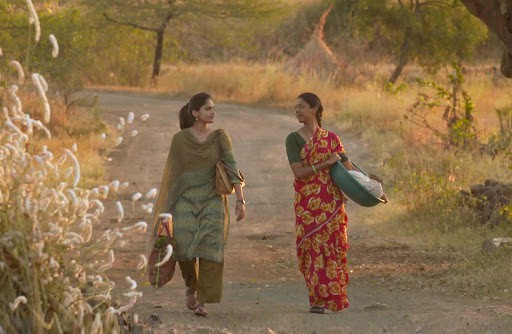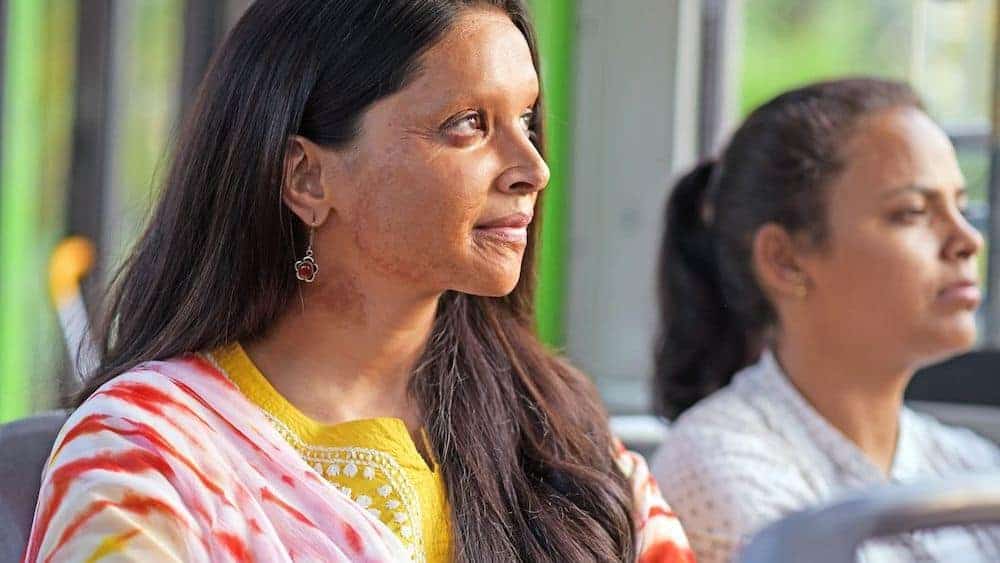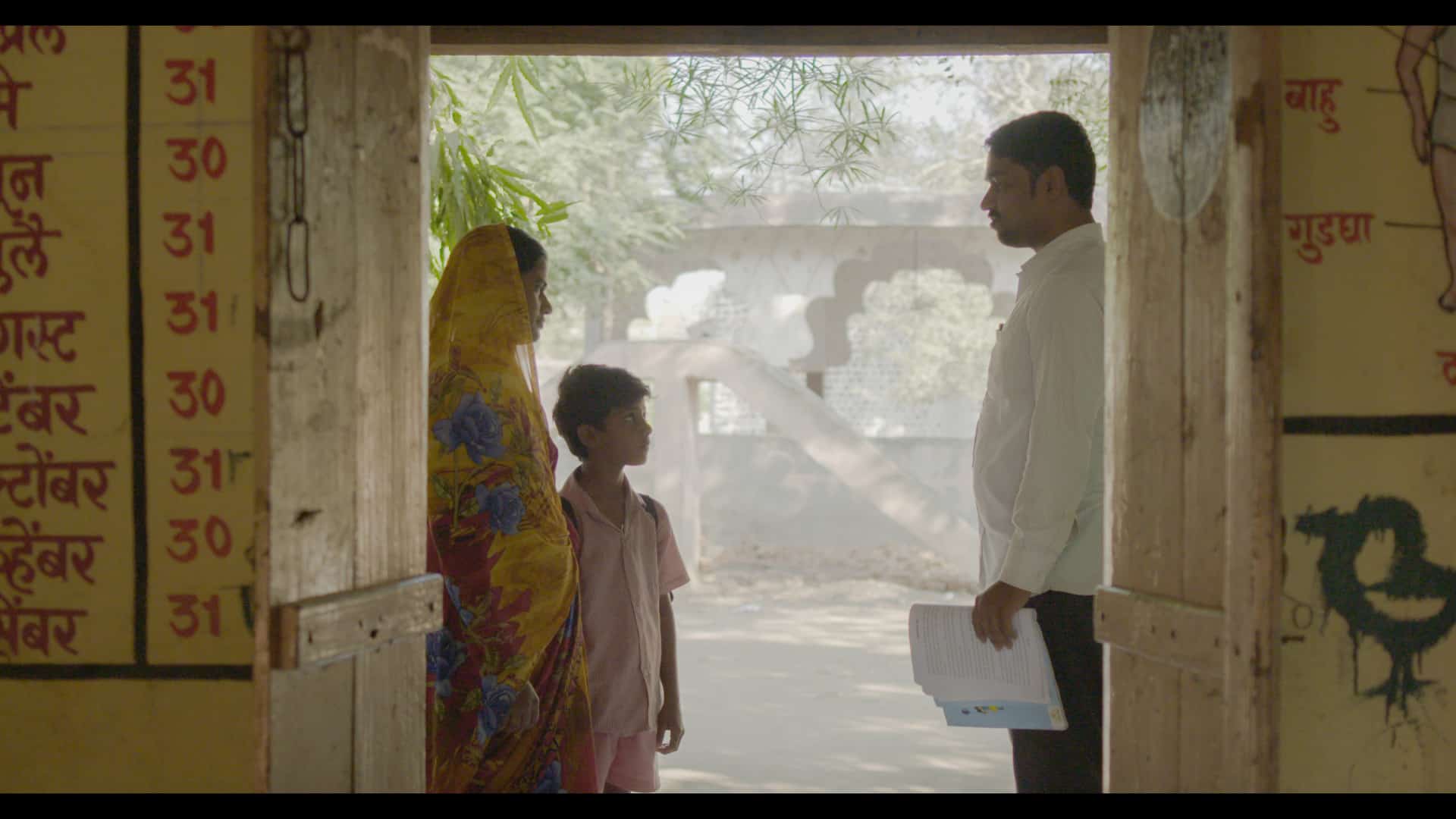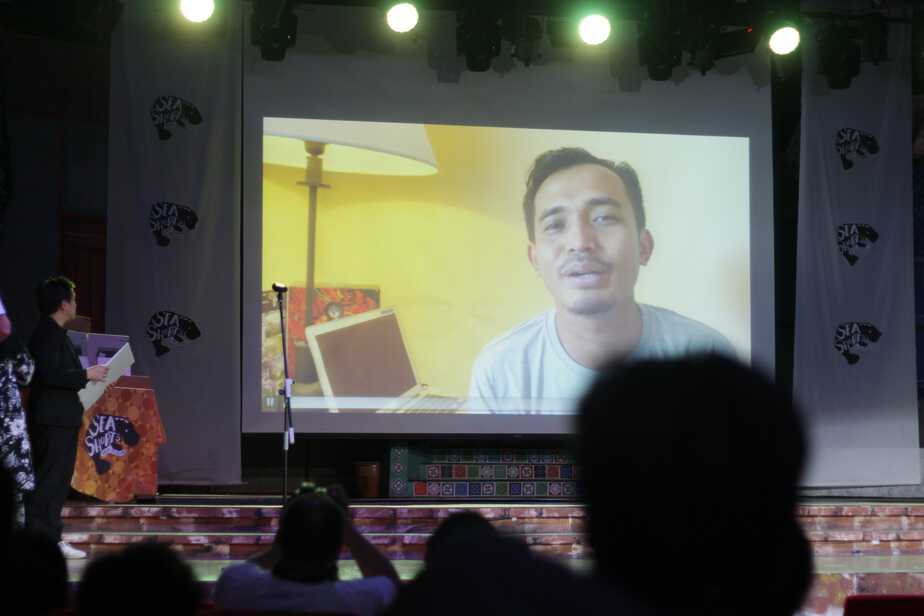When it comes to telling the story of a homosexual or someone discovering he/she has feeling for a person of the same gender, the film industry, like so many others, favors the story of the victim. Rather than telling a love story, the idea is to show the protagonist as victim, her/his love without any chance of being fulfilled within the context of backwardness and reactionary politics or social norms. The Indian film industry, as director Rohan Kanawade points out, is no exception, even though homosexuality has been legalized, creating a certain demand for more positive stories and protagonist, whose sexuality is no longer a “problem”, but rather something worth exploring. While it may take some time for mainstream cinema to fully realize the potential in these stories, Kanawade has taken the first step with his second short feature “U for Usha” which tells a story set in rural India about a woman discovering her affection for a local teacher.
“U for Usha” is screening at Queer Film Festival Munich

Usha (Kiran Khoje) lives in a small hut with her two children in a village in rural India. Since the father has left the family, it is up to Usha to take care of her son and daughter, which she does by working in the fields for a local farmer. When her son admits his grades are anything but perfect, his mother is eager to get him some help and asks his English teacher, a woman named Manisha (Arpita Ghogardare) to give her son some extra tutoring. However, when she meets the teacher, who has just moved in from the city, she feels a strong connection to her and eventually agrees to also receive some lessons in reading in writing as she confesses she had never learned these things.
As the days go by, Usha realizes her feelings for Manisha become increasingly intense. While she also makes a lot of progress and is eventually able to write her name and read a few stories, she also wants Manisha not to stay alone anymore.
Even though Kanawade's script mentions the cultural and social context of his protagonists a few times, the focus of his story lies with the discovery of Usha's affection, mirrored by her advances in reading and writing. With her life having been defined by work and taking care of her children, these new feelings and newfound independence is quite the discovery for a woman who was used to concentrate on others rather than herself for most of her life. Kiran Khoje shows Usha as a person whose first tentative steps into these new world become a rather insatiable curiosity in exploring them more fully.
Additionally, the idea of writing one's name for the first time is the first decisive step into a new life, or rather stage of life. In one of the best scenes in the feature, Usha reads out her name which she wrote down, and also the name of the person she is in love with as if to confirm this feeling she experiences, perhaps even a willingness to take the next step in this relationship.
“U for Usha” is a beautifully narrated love story, a feature about discovering one's feelings for another person and the joy of exploring them. Rohan Kanawade has managed to create a mature and visually quite eloquent short feature which should supply him with a great calling card when it comes to developing his first feature.















